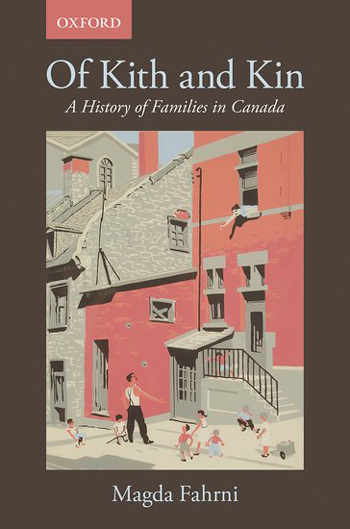Of Kith and Kin

Of Kith and Kin: A History of Families in Canada
by Magda Fahrni
Oxford University Press
320 pages, $45
For better or worse, most of us have a personal sense of what family means to us. For some, family is a cherished institution; for others, it’s an instrument of oppression. As Université du Québec à Montréal history professor Magda Fahrni notes in Of Kith and Kin, the family has always been both an institution and an idea.
There are many ideas about what a family is supposed to look like. But families are also the building blocks of society, cemented in place by systems of law, economics, education, and religion. This book explores the makeup and influence of families in Canada over the past five hundred years — from Indigenous families, with their complex kinship systems, to the twentieth-century nuclear family and the diverse “chosen” families of today.
Early missionaries to New France, for example, saw Indigenous parents as overly lax and indulgent with their children, whereas Indigenous people regarded French colonist mothers as “porcupines,” meaning they were prickly and distant with their progeny.
Fahrni’s book illustrates how family patterns evolved to adapt to economic changes. The Industrial Revolution — which forced widespread migration from farms to cities — had a huge impact on families, many of whom had to send their small children to work in factories and mines. And today we have the phenomenon of the stay-at-home generation — adult children who don’t leave the nest.
Of Kith and Kin covers a lot of ground. While academic in nature, it is engagingly written and enjoyable to read.
With 7 uniquely curated newsletters to choose from, we have something for everyone.
Themes associated with this article
Advertisement





